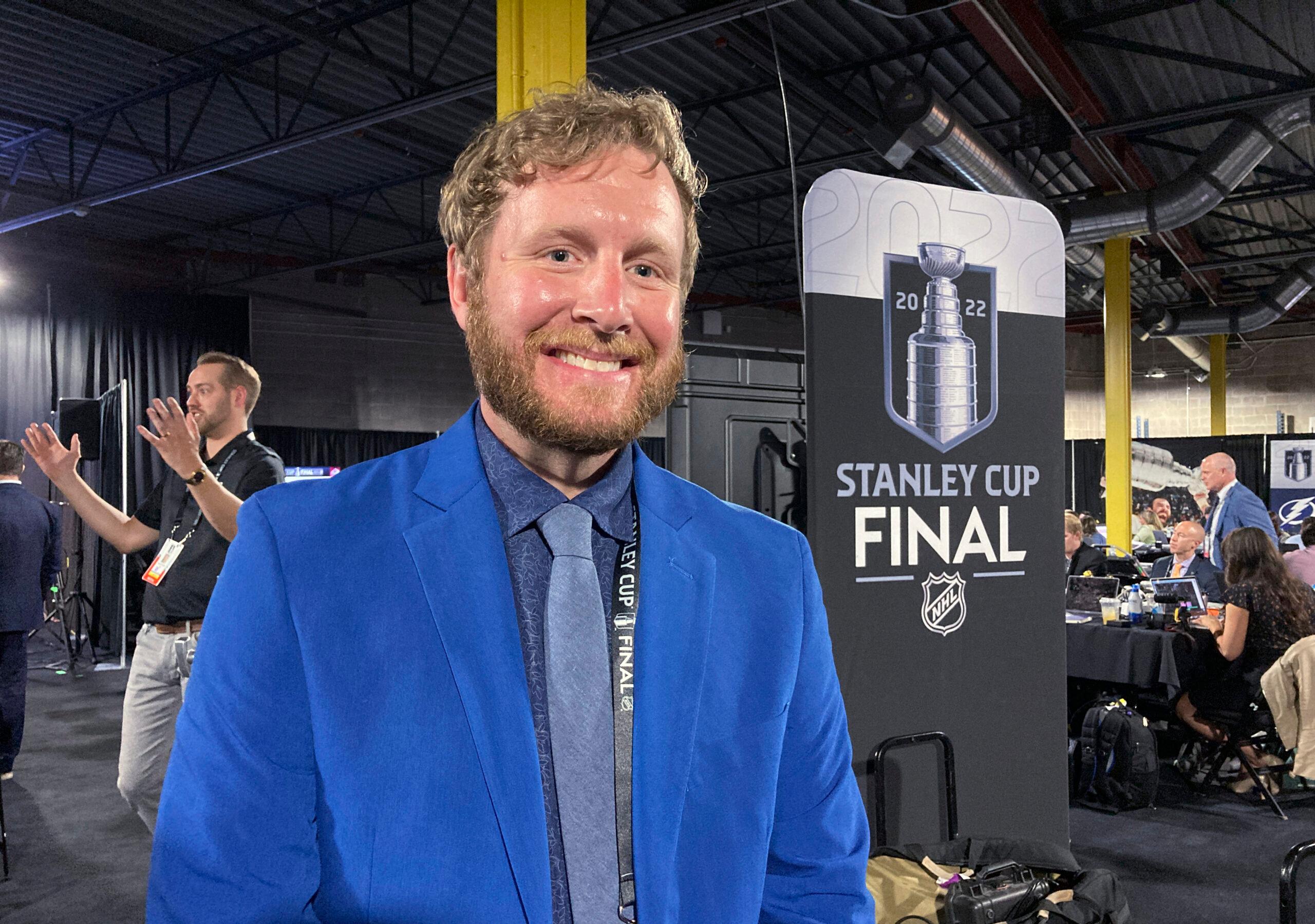
By STEPHEN WHYNO AP Hockey Writer
DENVER (AP) — Brice Christianson went to sporting events as a child and realized how inaccessible that world was for his deaf father.
On Wednesday night, he stood 10 feet from NHL Commissioner Gary Bettman translating English into American Sign Language for the annual state of the league address at the Stanley Cup Final. Christianson was shown picture-in-picture on NHL Network interpreting Bettman and Deputy Commissioner Bill Daly's remarks.
Sign language interpreters have been present for national anthems, but this represented the NHL’s biggest step yet to make the stories around hockey available to the deaf and hard of hearing community.
“We’re just scratching the surface,” said Christianson, who is the CEO for P-X-P, which specializes in making sports and entertainment more accessible for the deaf and hard of hearing. “Before, we always felt like we were lucky. Like I felt like we were lucky to be here, they’re giving us an opportunity, and I don’t mean this arrogantly, but now I feel like we belong.”
Christianson and P-X-P chief operating officer Jason Altmann didn’t just belong. They were guests of honor at the final, spending time with Bettman and other league executives in the green room at Ball Arena after helping out at the news conference. Altmann signed it was important to have American Sign Language access to play by play, commentary and news to make sports feel more welcoming.
“Fans are diverse, and deaf and hard of hearing people belong in that,” he said in American Sign Language as interpreted by Christianson. “I’m an NHL fan too. Many deaf and hard of hearing fans are huge hockey fans but are often excluded.”
Having Christianson there to interpret for Bettman and Daly is one branch of the league’s diversity and inclusion initiatives that have prominently focused on improving gender and racial balance. Executive Melissa Parnagian knows the deaf and hard of hearing are usually not the first group considered in that department, but has spoken plenty with Christianson and Altmann about what would help and be needed.
“What they emphasized to us is that a lot of what you can see in gameplay is easy to capture, but a lot of the sort of commentary and the business of the game, the culture of the game — the off-ice stuff — is often what gets lost because it’s less visual,” said Parnagian, NHL manager of growth strategies and social impact. “The commissioner’s address is one of those big moments where you start to hear about where the game’s going, all that off ice context, and we figured that was a good moment to really have this moment for accessibility and something we hope to build on.”
The National Association of the Deaf commended the NHL for the move. CEO Howard Rosenblum called it another milestone and said, “We hope that this momentum leads to full access everywhere, including visibility on television broadcasts.”
Christianson, who first worked with the NBA’s Milwaukee Bucks, hopes one day soon his presence is no longer a novelty. It’s his goal to help normalize sign language interpreters and make it “automatic” for teams and leagues to use them at major events.
“Deaf and hard of hearing fans have been excluded in so many aspects of our life, but primarily in professional sports,” he said. “Ideally, every team, every league has some sort of accessibility and inclusion in mind for deaf and hard of hearing fans but also for people with disability and how we maximize that and include them rather than sort of tokenizing them.”
Bill Millios, interim CEO of Deaf Main Street, a nonprofit organization dedicated to helping deaf-owned businesses, said there is reluctance in that community to acclimate to improved access based on concern it won't become a permanent thing. He hopes the NHL keeps this up.
“Too often it’s been tried and then taken away,” said Millios, who is deaf. “What the NHL has to understand is that this is a long-term commitment. If they truly believe in access, they have to do this every time. The Deaf hockey enthusiasts will build up over time.”









